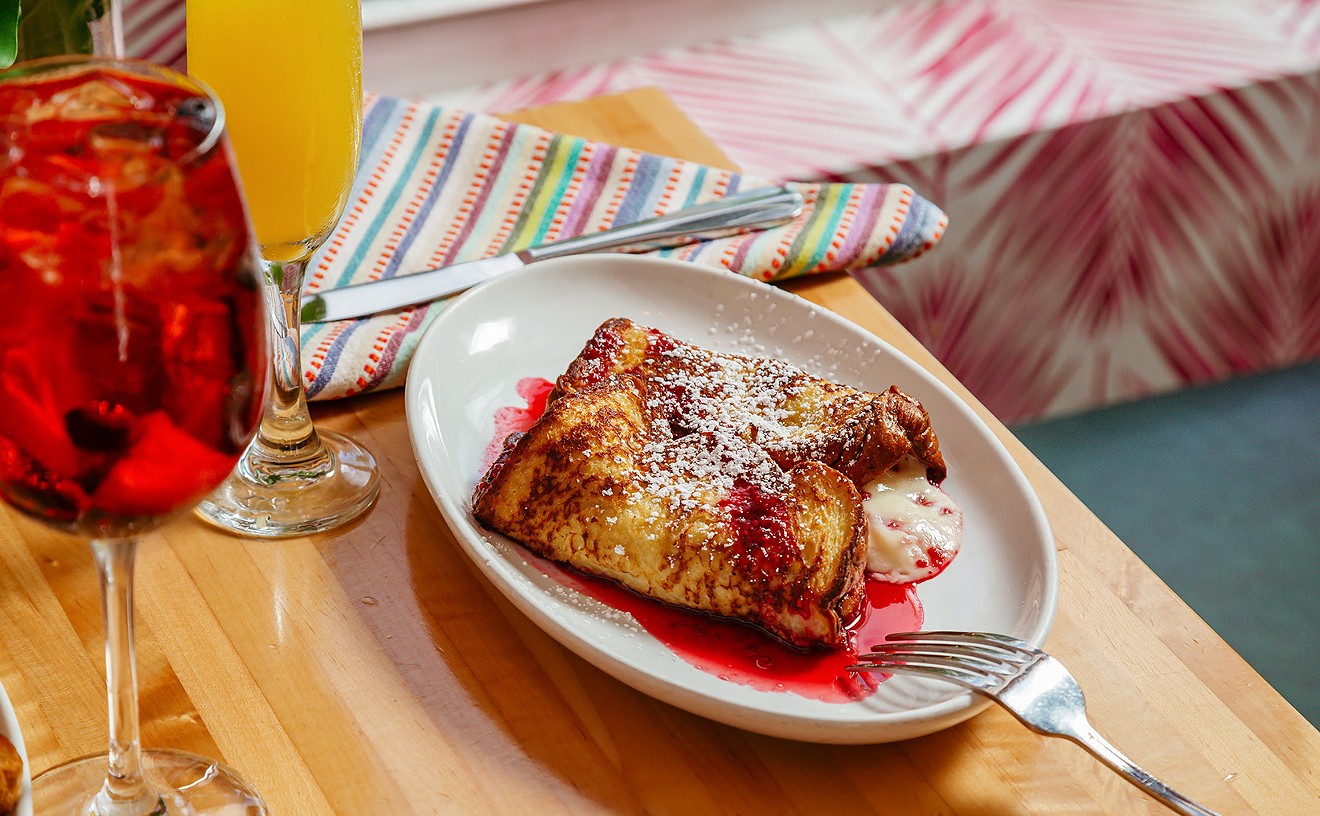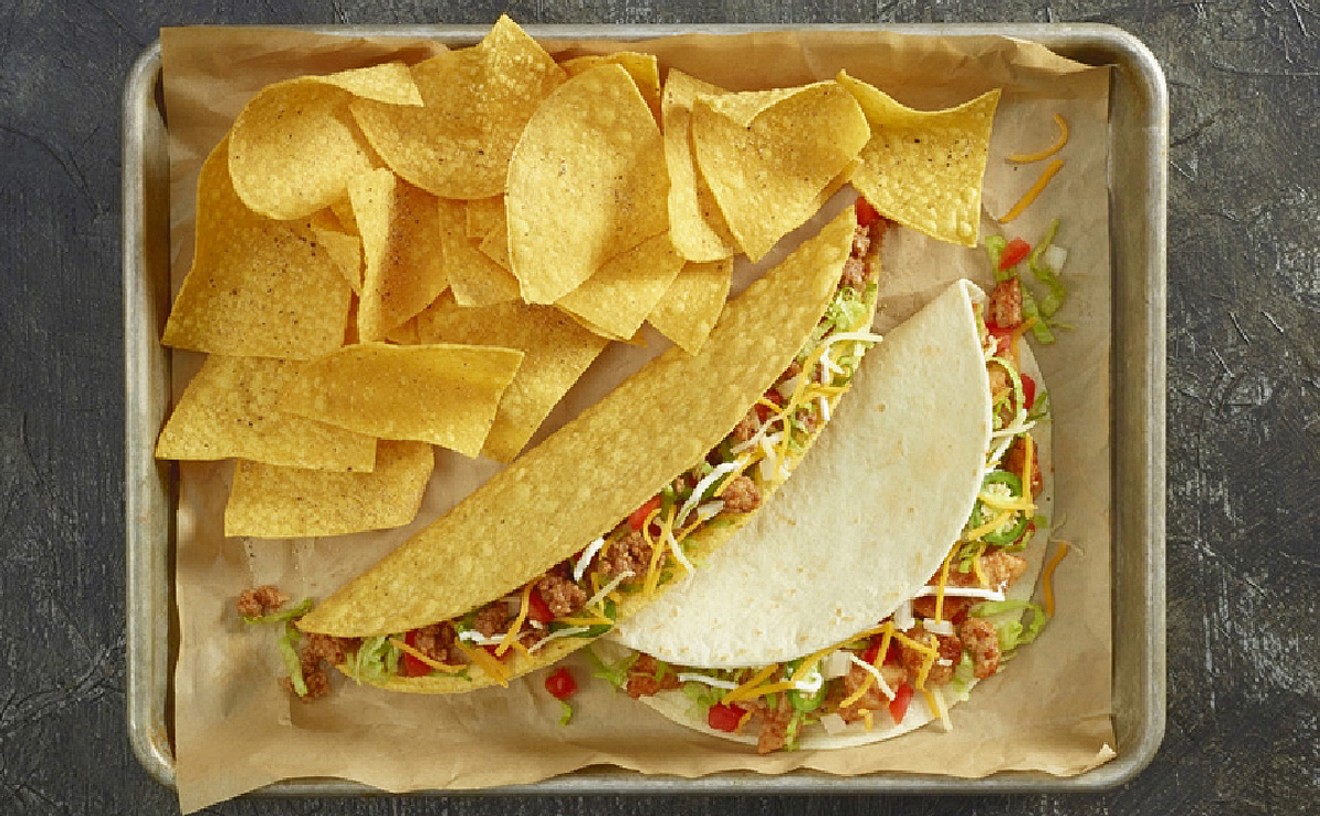Arlo Haskell is a Key West native, a poet and, for the last three years, a member of the small staff responsible for putting on the annual Key West Literary Seminar.
In January 2011 the annual event -- which started in 1983 and has a different theme each year -- will explore food in literature and welcome celebrated food writers like Calvin Trillin, Jonathan Gold, Ruth Reichl, Molly O'Neill and Frank Bruni to speak on topics like restaurant reviewing and the future of food writing.
During the seminar, Haskell becomes the event's technical director. He is also the author of Littoral, the seminar's online journal, where he has interviewed many of the speakers and recently created hypothetical menus based on the writings of authors like Ernest Hemingway during their time in Key West.
Short Order spoke to Haskell by phone about what to expect from the seminar and his favorite places to eat in Key West.
New Times: Past literary seminars have had themes like "Historical Fiction" and "60
Years of American Poetry." How did the decision to center this year's
on food come about?
Arlo Haskell: The theme ideas, we plan very far in advance, at this point we already
know what we're doing for 2012 and 2013 and they usually come from
suggestions. Food is a good example; it started out as a murmur around
our audience members. And that was an idea that we continued to hear and
we started considering it more seriously and looking at how viable it
would be.
How would you describe the response you've received?
The response has been very good. We're doing two sessions, which we
don't do every year. We have
to sell more seats, but demand has been very good and we're expecting to
sell out both sessions. The feedback is great. I think Key West is a town
with a lot of restaurants, with a lot of people who like food and like
reading about food. Expectations are high.
From what you've seen in planning this festival, has there been a change in food writing?
I suspect there is and I think there is and I don't think I can put my
finger on it. And that's one of the cool things that happens in this
seminar. You have this group of writers that are invested in one degree
or another on writing about this theme and we get people in the
frontlines of what's changing. One of the panels we have this year are
Ruth Reichl, Judith Jones and Jason Epstein on how food writing has
changed and where it's going. That's a great group of people to be
talking about it because they're all food writers but they're also
publishers. Judith Jones edited Julia Child, Ruth Reichl now has the
deal with Random House and it sounds like she's going to be overseeing a
lot of the food writing that we're going to see. That's one of the things that we'll be learning.
You've been doing features for Littoral in which you create a menu based
on an author's writings and letters. How do you put together the menus?
It helps that I'm a fan of each of those writers. Growing up in Key West
and being a poet and a scholar of American poetry, I'm a big fan of
poet's letters. I can picture myself through them and see with a local
lens. I've been reading the letters of Elizabeth Bishop for a long time and my
idea was to find references to food and there were much more than I
remembered.
What literary figures would be the most fun to invite to a dinner party?
Elizabeth Bishop who lived in Key West in the 30s in 40s and she wrote
about food much more than [others] did. She had a wide ranging, eclectic
taste and she was always sending packages of food to Marianne Moore in
New York. She was into odd, what she called strange Cuban foodstuffs
that she'd get down here, so I feel like she'd be a great dining
companion because she'd bring a bunch of fun stuff. A dinner party, it's great for what you're eating but it's all about the
people you're with and that sense of communion. I'm a poet myself, and a
big fan of Wallace Stevens so I would love to have dinner with him and
Elizabeth Bishop.
What would Stevens bring?
I would ask him to bring the scotch for afterward. I wouldn't ask him to bring anything else but I know he'd bring good scotch.
What are your favorite places to eat in Key West?
The one place that springs to mind right off the bat, only open for
lunch and it's only take out, is a place called Badboy Burrito. It's a
husband and wife team; he's [Chris Otten] the former chef at Nine One Five. He's a
fishing buddy of mine. That's a place I love.
Nine One Five where he used to cook is also quite good. And Ambrosia, it's a sushi place, which
I'm a big sushi fan, and I always really come back thinking Ambrosia is
the best place. In Key West you also have great access to
hole-in-the-wall coffee and sandwich counters. There's a place called 5 Brothers where I just got my morning cortadito.
Is there anything else you want people to know about the seminar?
I think one thing that makes the seminar a unique experience that
doesn't come across until you get here is that it's a social event also.
You have this packed schedule of heady intellectual stuff and there's
also these very casual parties afterward that are very well attended by
the authors that are here, so it's a great chance for people to mingle.
You've just seen Ruth Reichl, Jonathan Gold and Frank Bruni talk about
how they review restaurants and then you can see them at the bar and
talk to them in a more intimate exchange. That's something that's really
cool about the seminar.
The Hungry Muse: An Exploration of Food in Literature takes place from January 6-16, 2011. More about the seminar and registration information at kwls.org.









